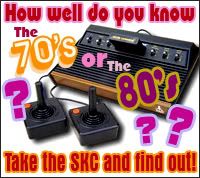A GATHERING OF AMNESIACS (In defense of Freddie Aguilar, a true Pilipino artist)
By R.N. Rigor
“I recorded the song Bayan Ko (My Homeland) in 1979---seven years before the revolution. I felt that foreign culture was beginning to swamp local pop music. I thought that maybe a patriotic song would jolt back those who were starting to forget who we really are. Bayan Ko was the best I could think of…
When I was singing that song, without accompaniment, beside the coffin of Ninoy Aquino, I broke out in goose pimples. I was thinking, “I am full of conceit. All I do is talk. This man gave his life.” From then on, I became part of the protest scene---all the way until the revolution, still singing Bayan Ko.”
(Freddie Aguilar, quoted from People Power, an eyewitness history, 1986)
In the past month, our nation mourned the passing of Tita Cory, laid her to rest in the most fitting solemnity due one who has been known as the icon of Philippine democracy. Every Filipino across the globe must have witnessed the outpouring of the masa, the presence of every well-healed politico and entertainment personalities paying tribute to the wife of Ninoy, himself a national hero whose life and tragic end propelled Tita Cory to her niche in history.
For many of us who can remember, the slaying of Ninoy Aquino in 1983 was the beginning of the end of the Marcos era. That was three years prior to the biggest and most revered People Power movement that not only shocked the whole world, it also offered the people of a nation a new beginning. It made every Filipino proud.
It was during these challenging moments in our history when one of our most prolific and perhaps the closest to every Filipino then, because of his daunting songs and unabashed national pride, sang a nation to action.
Bayan Ko - Original Sound Track
Freddie Aguilar was known to have stirred the hearts of even the most jaded when his song ‘Anak’ aired the Holy Week after his Metro Manila Pop Music Festival debut. The year was 1976. The more popular singing personalities of the very first government-sponsored festival took the major awards, overshadowing the lilting song from an unknown Olongapo folksinger. But, the song’s message cannot be denied. Not from his own people. Not from the world.
Anak - Original Sound Track
For the very first time in the history of Philippine pop culture, a Filipino song cascaded across the globe in its original version. Every Japanese can sing the song from the heart---in Pilipino. Every European can recognize the song, in more than a dozen languages. This song spurred the “golden era of the seventies”, as pop artist/songwriter Rey Valera would eventually refer to, with original Pilipino songs and compositions lording its way not only in Asia, but even as far as New York. Pinoy songs would end up taking major awards in Asian festivals; local disco’s “Awitin Mo at Isasayaw Ko” was a favorite of Diana Ross at Studio 54 in New York.
Through those years, Ka Freddie, together with his cadre of folk artists (the likes of Florante, Asin, Banyuhay, Joel Ayala, PenPen, etc.) challenged the nation of the political reality of the times. Not only did the people listen, the government’s media authorities did not like what was being addressed. Unknown to many, Ka Freddie’s winning entry to the Second Metro Pop Festival, my brother Snaffu’s composition “Bulag, Pipi, at Bingi” (The Blind, the Mute and the Deaf), was eventually pulled from further airing as it suggested a subversive undertone according to the Broadcast Media Council.
Bulag, Pipi, at Bingi - Original Sound Track
This did not stop Ka Freddie from doing what he does best, to write from the heart and through the heart of the masa. It is unfortunate, and frankly, it is borne from sheer ignorance that some commentators would refer to this pop icon as one whose songs are “only heard by beggars”, as one who is a “sour grape whose time has come and gone”…
These comments from amnesiacs have completely put aside the fact that the guy singing for Tita Cory’s cause during that infamous snap election in 1985, the eventual People’s Power march 0f ’86 that hurled the nation to its new-found freedom was Ka Freddie and his version of what became the people’s anthem, ‘Bayan Ko’. Sure, it is the beggar’s song, but it was the masa of “beggars” that made possible the very freedom that careless commentators like these are enjoying these days.
Ka Freddie’s absence in all of Tita Cory’s last hours before she was finally laid to rest, with echoes of his rendition of ‘Bayan Ko’ and the memory of People’s Power coming alive among the multitude of masa along the funeral cortege, is really ironic.
Perhaps, because of late, Ka Freddie made an unpopular remark regarding several of today’s entertainers who have carved their presence globally. I can understand his argument. True, we are a nation of gifted and talented entertainers, who provide others the delight of hearing songs sung or seeing acts closest to the original. But, in the same breath, we have just as much Pinoy creativity to unleash, much like what “Anak” had done for Freddie, or what Pitoy Moreno has done in the field of fashion, and the many talented local artists in the visual arts. I believe that this is what he is trying to make clear.
Nevertheless, doing great mimicry is far from being original, indeed. Ka Freddie is an original and will not refrain from speaking his mind. His reference to the “unggoy” (monkey) is a stark caricature of the current trend of Filipino popular culture. Truth can be very abrasive sometimes.
He once made his nation proud. Those who forsake him because of what he envisions a nation’s gifted talents to be are the very people who will continue to make the Philippines a nation of beggars.
R.N. Rigor
From 1976 to 1980, a Project Coordinator with the Popular Music Foundation of the Philippines (the producer of the Metro Manila Pop Music Festivals), and is currently a teacher in an alternative school for social justice in the state of Washington for the past 15 years. 
Technorati Tags:70s, 80s, music, nostalgia











